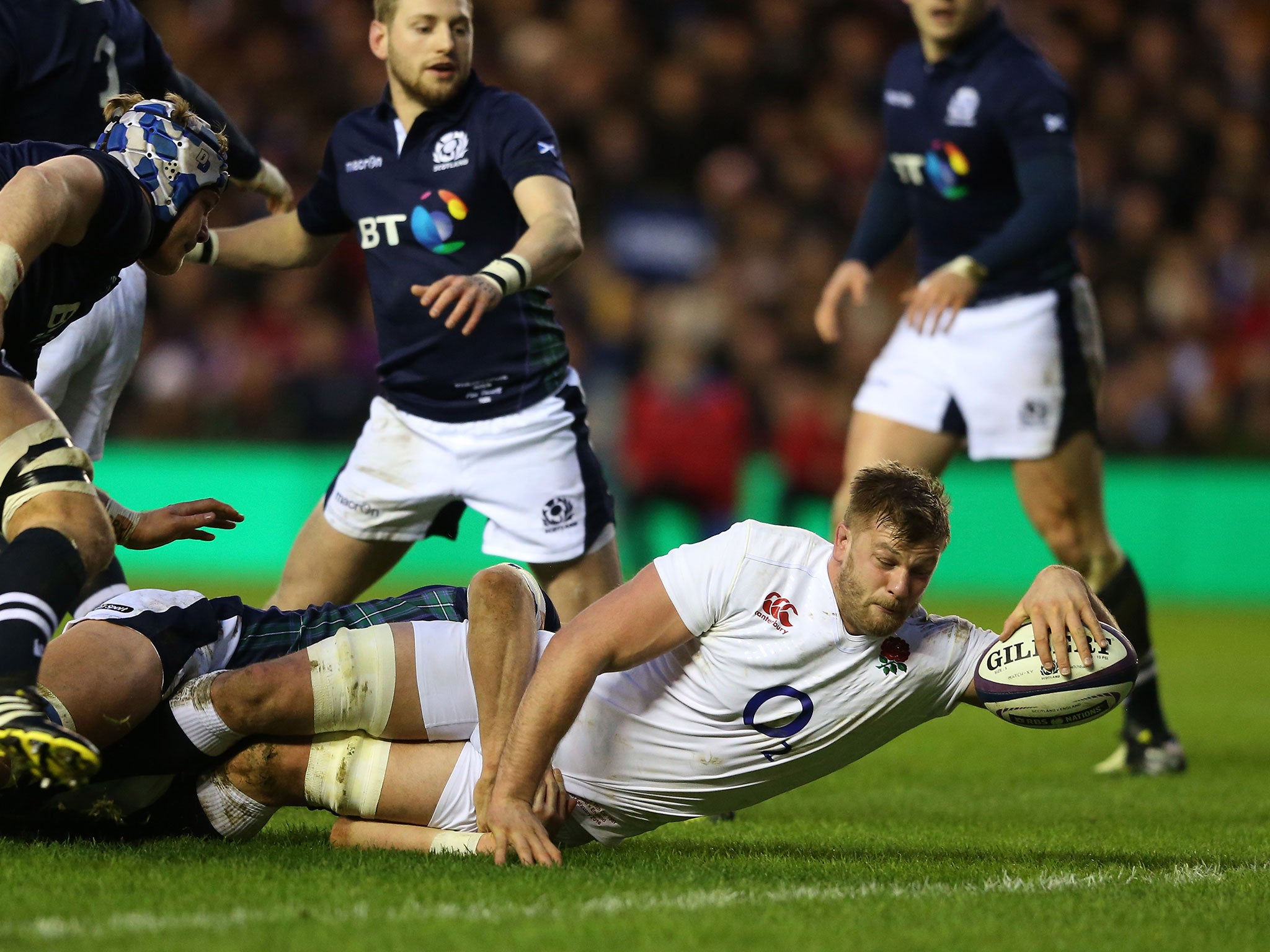Scotland vs England: Five things we learnt from the Six Nations encounter at Murrayfield, by Paul Grayson
What we’ve learned at the Six Nations this weekend

Your support helps us to tell the story
From reproductive rights to climate change to Big Tech, The Independent is on the ground when the story is developing. Whether it's investigating the financials of Elon Musk's pro-Trump PAC or producing our latest documentary, 'The A Word', which shines a light on the American women fighting for reproductive rights, we know how important it is to parse out the facts from the messaging.
At such a critical moment in US history, we need reporters on the ground. Your donation allows us to keep sending journalists to speak to both sides of the story.
The Independent is trusted by Americans across the entire political spectrum. And unlike many other quality news outlets, we choose not to lock Americans out of our reporting and analysis with paywalls. We believe quality journalism should be available to everyone, paid for by those who can afford it.
Your support makes all the difference.Attitude
After all the questions raised over Dylan Hartley’s status as captain, we saw at the end the picture which sums up the Northampton hooker. His arms were folded, he walked quietly towards his players for a handshake, to look them in the eye. There was no fist-pumping, just quiet satisfaction at a job done.
He came into the game under massive scrutiny, he needed to deliver both for England and for himself, and I think he did. There was a moment in the second half when England conceded 10 metres for dissent after Hartley and another player had a debate with the referee but I’m uncertain who was at fault and certainly Hartley seemed in control.
England came into the game seeking to be aggressive and confrontational but, at the same time, they cannot afford silly penalties, of which there were far too many. There is enough experience in the side for England to take action on the pitch, not wait for half-time instructions, and if they do not mend their ways, it could cost them dear.
Style of play
Before the match England ran a series of drills which emphasised that players must keep their feet. They hit the deck, they got up again as fast as possible. England do not want players out of the game, they want them constantly involved, which puts a premium on fitness, but they took that “bounce” into the game straightaway.
They are keen to play ball in hand, to play off ball kicked to them or turned over. Against Scotland they did this to their detriment at times, particularly when taking quick lineouts, but this will be the theme going forward. They may have to upskill to perform at international intensity but they must have this collective desire to use every piece of possession.
In the opening period they did nothing complex, a couple of phases then the kick to turn Scotland round. Then they went to one-out runners, trying to play hit-and-run rugby, but they couldn’t do that effectively because Scotland were better when the ball was on the ground. The only time it genuinely succeeded was when George Kruis scored his try.
The breakdown
England could not slow Scotland’s ball down as well as they would have wished. Scotland fielded two open-side flankers who worked well, they would play the short side then go wide and England struggled to match their numbers when that happened. In short, England could not impose their defence in the way Paul Gustard would have wanted, but give them time.
If that happens, then you don’t get the line speed, you have less chance of winning the big collisions. England were fortunate that Scotland couldn’t take the chances their play at the breakdown deserved. But matters improved in the second half, England took a grip on the game and never looked like losing, even if the scoreboard suggested otherwise. It may be that a change of personnel in the back row is required – what chance Jack Clifford starting in Rome?
Midfield conundrum
Little functioned for England in attack before the interval. Owen Farrell made one strong carry but otherwise the midfield was ineffective. They improved in the second half, notably when Jack Nowell scored thanks to Farrell pivoting around Mako Vunipola, and that showed a glimmer of what England are seeking.
But the tactical kicking must improve – and I would include Mike Brown in that. When England put the ball behind Scotland, they caused problems. It’s possible that George Ford’s form reflected that of his season with Bath, where the club has been inconsistent, and if Manu Tuilagi becomes available, I think Farrell would win the shootout for the fly-half’s jersey.
Billy boy
The message from Eddie Jones to Billy Vunipola is clear. If you want to be the best No 8 in the world, you have to be able to give me 80 minutes and the fact that the coach has backed him to do that will give Billy confidence. He dealt with a retreating scrum well (although players around him did not) and every time he carried, he crossed the gain line. He is vastly improved as a defender and he gives the opposition nightmares in attack. He is growing up rapidly.
Join our commenting forum
Join thought-provoking conversations, follow other Independent readers and see their replies
Comments